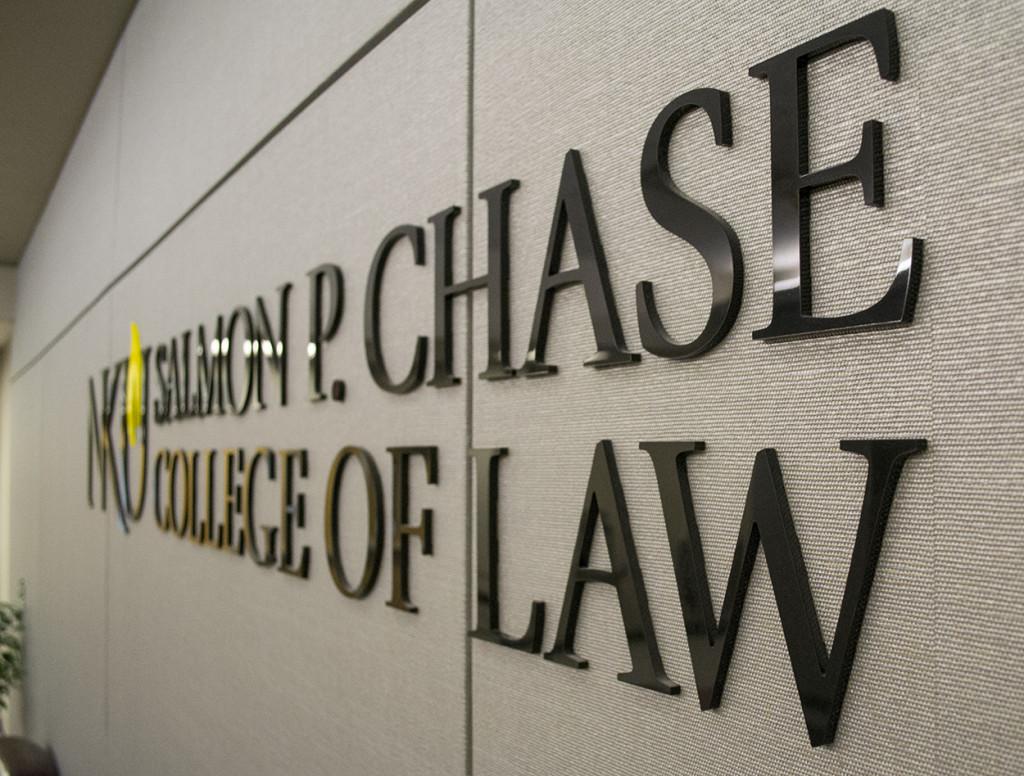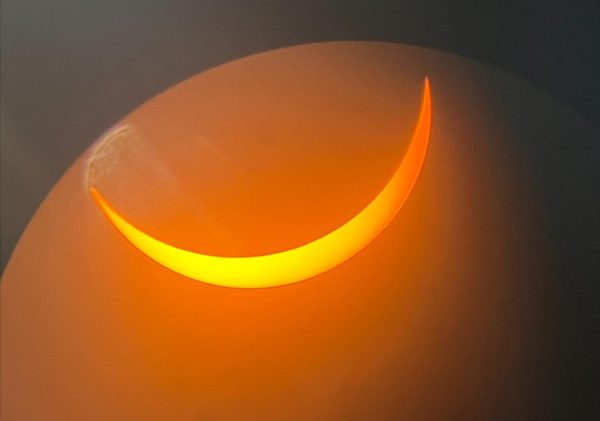Chase admission standards questioned
Salmon P. Chase College of Law at Northern Kentucky University.
Contrasting this year’s increase in admission standards by Northern Kentucky University in an effort to form the school’s strongest freshman class to date, Salmon P. Chase College of Law loosened its admission standards to form an entering class that is weaker than the entering class from the previous school year.
According to the latest numbers released by Chase’s Office of Admissions, the median LSAT scores for the entering class decreased by 2 points, with an overall 5 percent drop in the class’s median GPA. The bottom 21 students in the class had LSAT scores of 146 or lower.
Chase’s admissions webpage described undergraduate GPAs and LSAT performance as two main factors in regards to admissions. “The Admissions Committee relies heavily on each applicant’s undergraduate grades and performance on the LSAT during the application review process,” the webpage stated.
However, according to Chase Law professor and Admissions Committee member Kenneth Katkin, not only were the admission standards not increased for this year to form an academically stronger entering class, but the entire admissions process was overthrown, which resulted in a significant lowering of admission standards.
According to Katkin and Admissions Committee member and professor Kimberly Hausbeck, the routine admissions process ended in late April 2012. However, at the start of the fall semester, both Katkin and Hausbeck noticed that countless other students had been accepted and were attending the school.
Chase Law Dean Dennis Honabach stated at the Sept. 20 Chase faculty meeting, after being questioned by Katkin about the situation, that Chase Admissions Committee Chair and professor Henry Stephens was forced to continue the admissions process after the last applications were reviewed by all members of the Admissions Committee due to an influx of new applications after the start of the summer semester.
Because Katkin and Hausbeck were not employed during the summer semester, Stephens said he was not able to send what could be considered work to committee members who were not holding paid positions within the college at the time.
Typically, as part of Chase College of Law’s policy and tradition, students are automatically admitted or rejected based upon their LSAT scores. A score that matches the median score from the last year’s entering class is needed to get an automatic admit.
Students whose scores do not meet this median LSAT score, yet show considerable skills needed to succeed such as a high GPA, a relatively close LSAT score or considerable amount of relatable experience can be selected by Director of Admissions Ashley Gray and passed to the Admissions Committee in order for the student’s application to be voted on.
After all admission processes were complete, 68.2 percent of students who applied to Chase were accepted for this school year compared to 51.2 percent of students who were accepted for the 2011-2012 school year.
“This increase in the number of students accepted wasn’t due to a larger pool of applicants available,” said Katkin. “It was due to the acceptance of students who were already previously rejected by the committee.”
The concern for Katkin and Hausbeck was not that usual policies were broken, but what the purpose was for admission processes that went on while the two members were off for the semester.
Honabach denies that there were any changes to the admission processes. “I don’t know what they’re talking about in terms of changes of processes,” he said. “This year was handled the same way we have handled every other year.”
Honabach said that a national trend affecting all law schools would explain the drop in average LSAT scores and GPAs.
According to Honabach, the admissions process is set up with rolling applications, which means that applications can be reviewed all the way up until the start of the school year. “When they [applications] come in, in the summer, they’re handled by the members of the committee who are around to deal with it,” Honabach said.
Stephens stated in an email to Katkin that during the summer admissions process he re-admitted students that the committee had already voted to reject and/or students that were already automatically rejected.
“It seemed foolish to reject applicants who would clearly have been admitted 2-3 years ago, only to have them admitted by other competitor institutions, at a time when the information available to me indicated that dire financial consequences would ensue by not doing so, perhaps necessitating dramatic spending cuts or adverse personnel decisions,” he said in the email. “So you are correct that a large number of students currently enrolled are students that the committee had previously rejected.”
However, surrounding “competitive institutions,” such as the law schools of University of Kentucky and University of Cincinnati have admission LSAT medians of 158 while Chase’s is at 152.
Regardless of admission processes and specific LSAT scores, Honabach said the school only accepts good quality students. “We accept students who we think have the talent to make it,” Honabach said. “No one has been admitted who wasn’t qualified.”
Members of the Admissions Committee still disagree. “I am afraid that they [students] may have been set up to fail,” Hausbeck said in concern of the future success of Chase students.
Student Amanda Riggs is an undergraduate senior at NKU and plans to attend Chase Law after she graduates at the end of the school year. As pertaining to the situation with admissions, Riggs said admission standards should be displayed clearly on the college’s website and all students should be informed if admission standards or processes change.
And while Riggs does believe that the LSAT is a good indicator of student readiness for law school, she said that it shouldn’t be the only basis of acceptance.
“If you have a really good GPA and personal statement…I don’t think that a few points too low on the LSAT should be the reason you don’t get accepted,” Riggs said.













